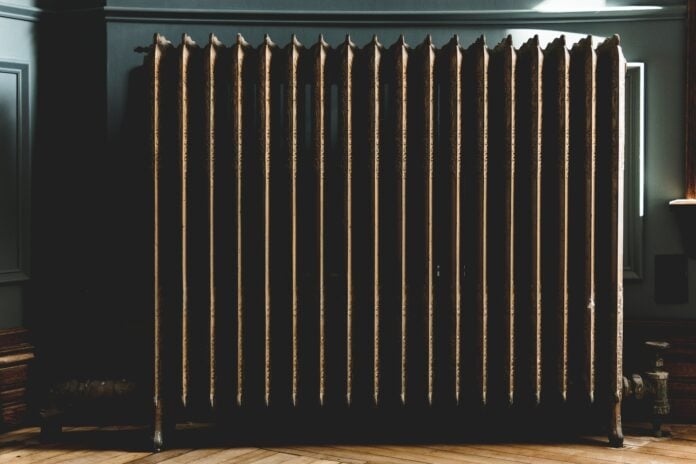As temperatures rise, skies clear, and the city settles into the full flush of April, New Yorkers start throwing open their windows to breathe in the spring air—and landlords start itching to turn off their boilers and save a few bucks on heating their apartment buildings. However, New York City has strict laws about when tenants’ heat can legally be shut off, and there are steep consequences when landlords decide to forsake their responsibility to keep their tenants warm.
What Is New York City’s Heating Law?
According to New York City’s Department of Housing Preservation and Development, heat must be provided to tenants from October 1st to May 31st of each year—a period referred to as “heat season.” During this time, the interior temperature of residences must be kept at a minimum of 68 degrees Fahrenheit between the hours of 6 a.m. and 10 p.m. when outdoor temperatures fall below 55 degrees, while indoor temperatures must be kept at a minimum of 62 degrees at night regardless of how cold it is outside. In addition, hot water must be provided year-round at a minimum temperature of 120 degrees Fahrenheit.
How Does This Compare to Heating Laws Elsewhere?
New York City’s heating law is similar to that imposed at the state level. The 2020 Property Maintenance Code of New York State requires that building owners maintain a minimum temperature of 68 degrees in all habitable rooms between September 15th and May 31st.
In the city of Chicago, whose winter temperatures are an average of 8.8 degrees colder than New York City’s, the heating season runs from September 15th to June 1st, and interior temperatures must be kept at 68 degrees during the day and a toasty 66 degrees at night. Philadelphia, slightly south of NYC, has a shorter heat season: daytime temperatures must be kept at 68 degrees from October 1st through April 30th.
Heating laws are a little different in warmer areas of the country. In balmy Los Angeles, where residents are apparently less tolerant of the cold, all apartments must be equipped with heating units that landlords are required to activate whenever interior temperatures fall below 70 degrees.
Are NYC’s Heating Laws Consistently Obeyed?
Unfortunately, New York City landlords are infamous for neglecting to activate their boilers punctually, prematurely turning off heating in the spring, and even failing to provide adequate heating even in the middle of heating season. A study conducted by RentHop found that 116,452 heat and hot water complaints were made to 311 between October 1, 2021 and January 19, 2022—an uptick of 25.6% from a similar period last year.
While all five boroughs experienced an overall increase in complaints, the study found that the distribution of these heat violations varied significantly between boroughs, with the Bronx sustaining the greatest negligence from landlords: of the top twenty neighborhoods with the greatest number of registered heat complaints, seventeen (or 85%) were located in the Bronx.
The study also found a notable correlation between the cost of an apartment’s rent and the likelihood that the tenants would need to make a heating complaint—generally speaking, the higher the rent, the less likely that a unit would be subject to a heat violation. In other words, there is a clear economic divide separating who is and is not receiving appropriate access to heat.
How Does Lack of Heat Impact Tenants?
An excessively cold interior temperature can make an apartment’s living conditions uncomfortable at best or downright unbearable at worst. A lack of hot water makes it difficult for tenants to maintain their personal hygiene and may lead to a buildup of harmful bacteria, while spending too much time in the cold can decrease the body’s immune response, so there are very real health issues involved with being deprived of heat.
Tenants are often forced to take on a significant financial burden in order to stay comfortable while waiting for heat issues to be addressed. Some stay warm by purchasing space heaters—an item that can put a significant strain on a family’s electric bill and may also pose dangers of its own. Children and pets can easily suffer burns from touching the heated surfaces of these appliances, while the electricity required by space heaters can trigger hazardous power surges that may result in a fire.
In a recent example, the cause of this January’s devastating blaze in the Bronx’s Twin Parks North West residential building was determined to be a malfunctioning space heater. Twin Parks North West has a long history of heating violations, and some have pointed out that the building’s management may be partially culpable for the tragedy by forcing their tenants to rely on space heaters rather than properly heating the building in the first place.
What Can Tenants Do When the Heat Is Out?
If you find that your apartment is not being properly heated, your first course of action should be to contact your landlord or superintendent to give them a chance to fix the problem. Under New York City Law, heating issues must be addressed by the building management within 24 hours. Your best bet is to notify them in writing so that you have proof that they have been made aware of the issue.
If this fails to produce results, you may proceed to call 311 and make a complaint. It’s always smart to log evidence of the conditions in your apartment—taking a timestamped photo of a wall thermometer is a great way to back up your claim. It is also wise to check in on your neighbors and see if they are experiencing similar issues. If so, encourage them to call 311 as well. When multiple people from the same building file complaints, the HPD is likely to get in touch with your landlord more quickly. If the issue continues to persist, the HPD will send an inspector who will assess the situation and impose fines on your landlord. If all else fails, it may become necessary to take your landlord to Housing Court through an HP proceeding.
Though tenants in New York City do have a right to withhold rent when their apartment becomes uninhabitable, this is a delicate process that can result in damage to your credit score or your name being added to a tenant blacklist when handled incorrectly. It is advisable to first exhaust all other options and then consult a lawyer before attempting to go on rent strike.
When dealing with heat complaints, your greatest allies are always your neighbors. A united group of tenants is much more effective in eliciting results from a neglectful landlord or dawdling municipal agency—and they may be willing to lend you a blanket or hot bowl of soup to chase away the chill in the meantime.
Sophie McIntosh is a Brooklyn-based writer and dramaturg hailing from Sun Prairie, Wisconsin. Her plays have been produced by Imaginarium Theatre Company, Platform Production Company, and in the Boston Theater Marathon. Check out more of her work at sophiemcintoshwrites.com!



